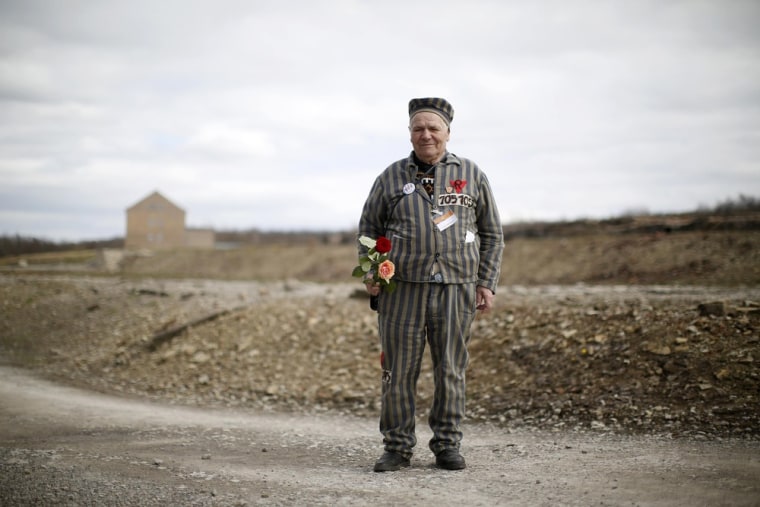
Between July 1937 and April 1945, the Nazis imprisoned a quarter of a million people in the Buchenwald concentration camp, located near the German city of Weimar. Around 56,000 of them were killed before the camp was liberated by U.S troops on April 11, 1945.
68 years later, Reuters photographer Lisi Niesner interviewed some of the remaining survivors as they returned to Buchenwald to mark the anniversary of the liberation.
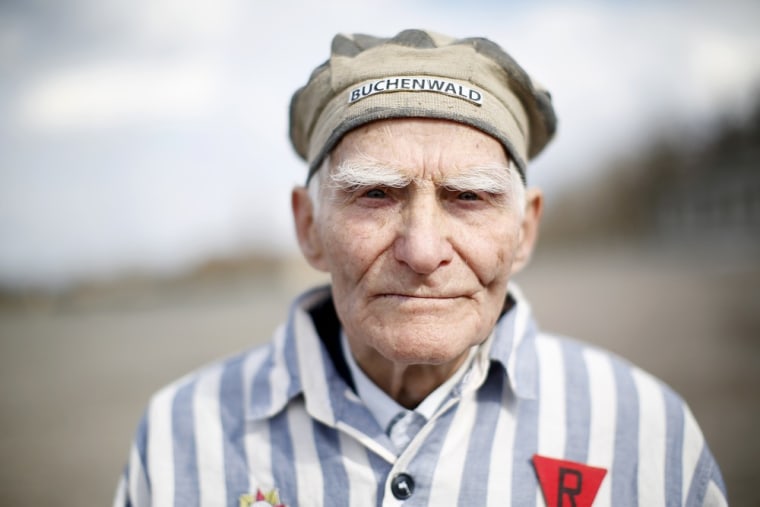
Victor Karpus, 88, from Ukraine, stood at the muster ground where inmates gathered at dawn each day for a roll call. Karpus was imprisoned in several camps including Buchenwald for a total of three years. He even once managed to escape from a camp but got captured and taken to Buchenwald, where he remained until its liberation.
"Work or die – it was impossible to get out from Buchenwald," Karpus says.
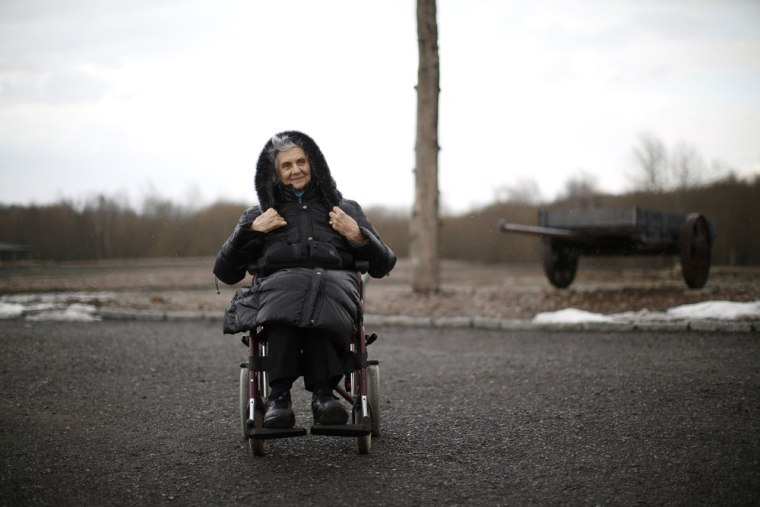
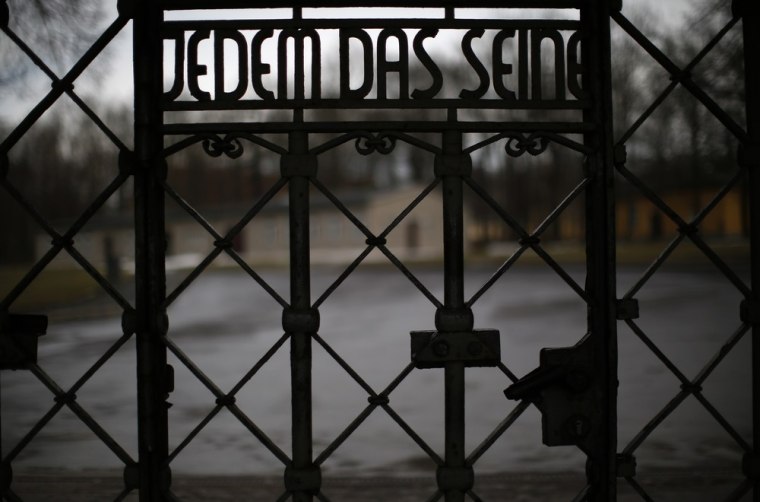
Eva Pusztai, 88, from Hungary, sat in a wheelchair in front of a reconstructed gallows. In July 1944 she was deported to Birkenau and six weeks later to Muenchmuehle, one of 136 satellite camps of Buchenwald.
The forced labor in the arms industry or the camp's stone quarry took the imprisoned to the brink of their physical abilities. "You got just enough food to survive. I lost a third of my weight and I was almost starving to death," she says.
"The employable have to be destroyed by work," she says, explaining the attitude of the Nazis to their prisoners. Her right eye filled up with a single tear that ran down her cheek, then she composed herself and smiled.
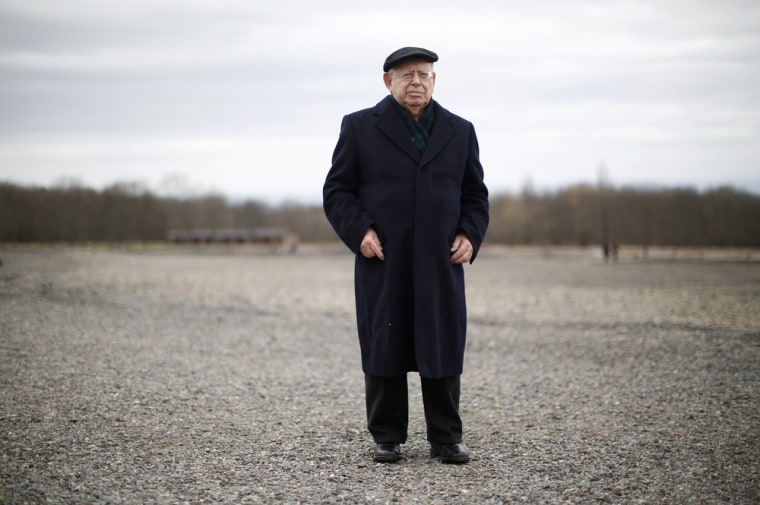
"Where is your god? Why he does not help you?" Jakob Silberstein, born in Poland in 1924, remembers the mocking of a high-level Nazi on Yom Kippur. He survived six years of captivity in Buchenwald and Auschwitz and witnessed brutal actions by the SS, being locked in a standing cubicle for a week, carrying stones and drinking rainwater for days.
He was standing inside the gas chamber at Birkenau when an SS man asked if any of the men were skilled laborers. "I stated I was an electrician, which luckily saved my life," he said. After the liberation he found out that none of his family or friends had survived the war. He now lives in Israel and tirelessly tells his story.
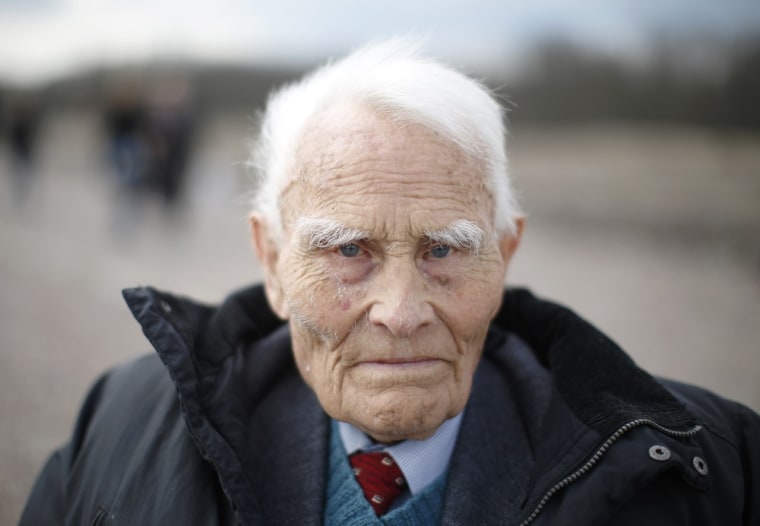
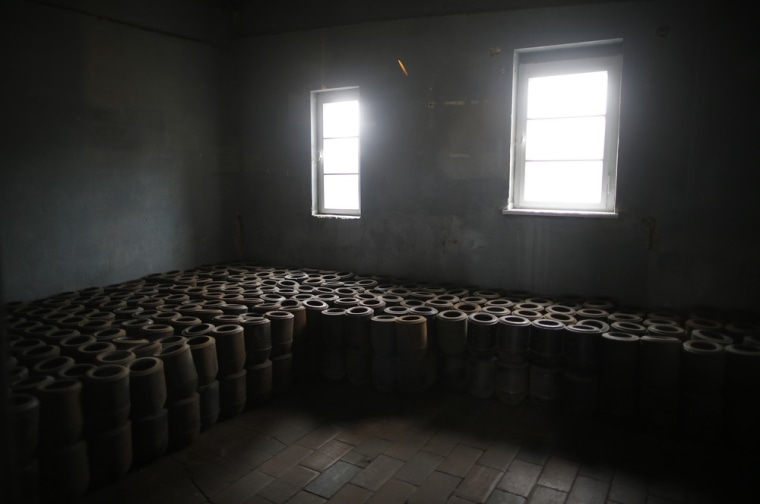
Professor Elling Kvamme, 94, from Norway, stood at the site of Barrack Block 22. He was teaching medicine at a university in Oslo in 1943 when he was arrested for his connections with underground politics. "Students are always dangerous and the Nazis realized it very quickly," he explained.
He was forced to take part in the Nazi program of Germanization and had to work at the pathological facility in Buchenwald. Before the dead were cremated in an incineration system developed to veil the traces of murder, specimens were taken from their corpses for anatomical collections.
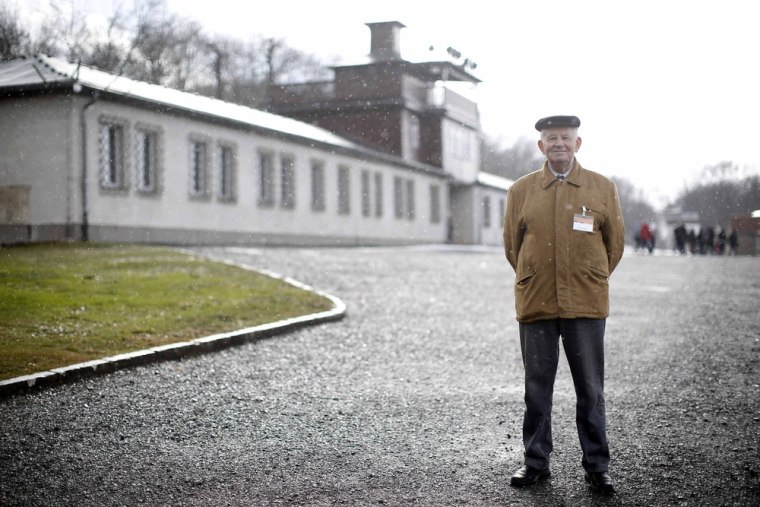
Vasile Nussbaum, 83, from Romania, spent a year in Auschwitz and Buchenwald. "Buchenwald was a sanatorium in comparison to Auschwitz" he recalls without hesitation.
Nussbaum revisits the site of the camp every year on liberation day. "You never know what’s coming, today we are 83 years old and in the next year we are no more here", he says.
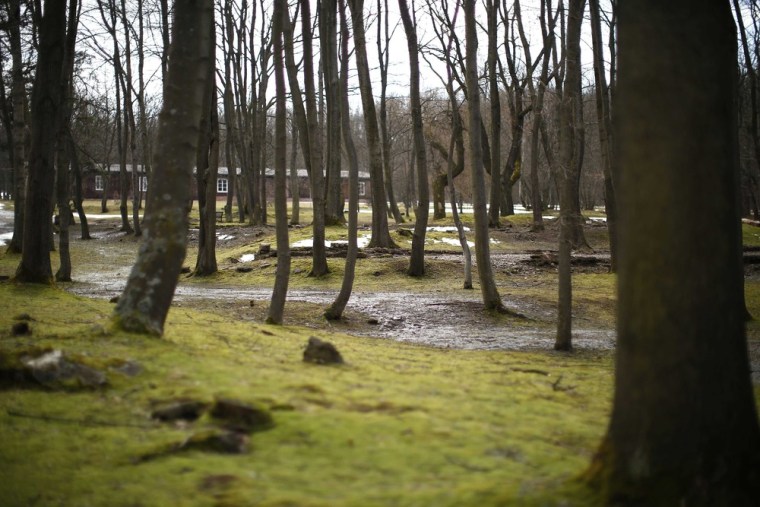
Editor's note: Pictures taken between April 11-14, 2013 and made available to NBC News today. Read more at Reuters' Photographers Blog.